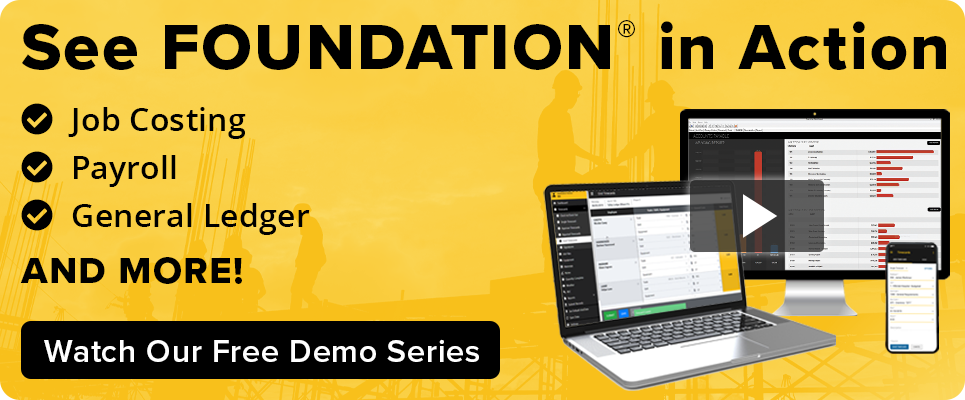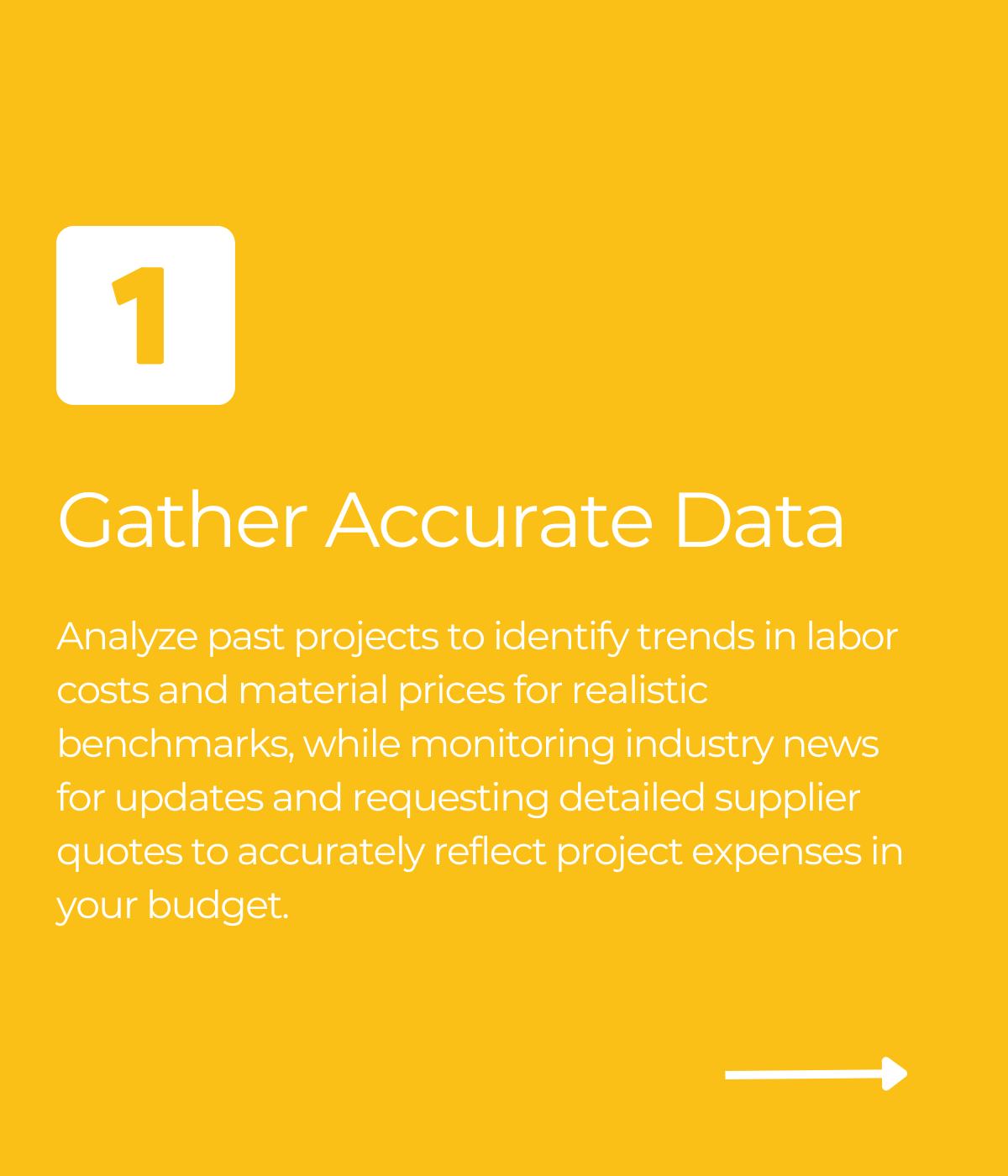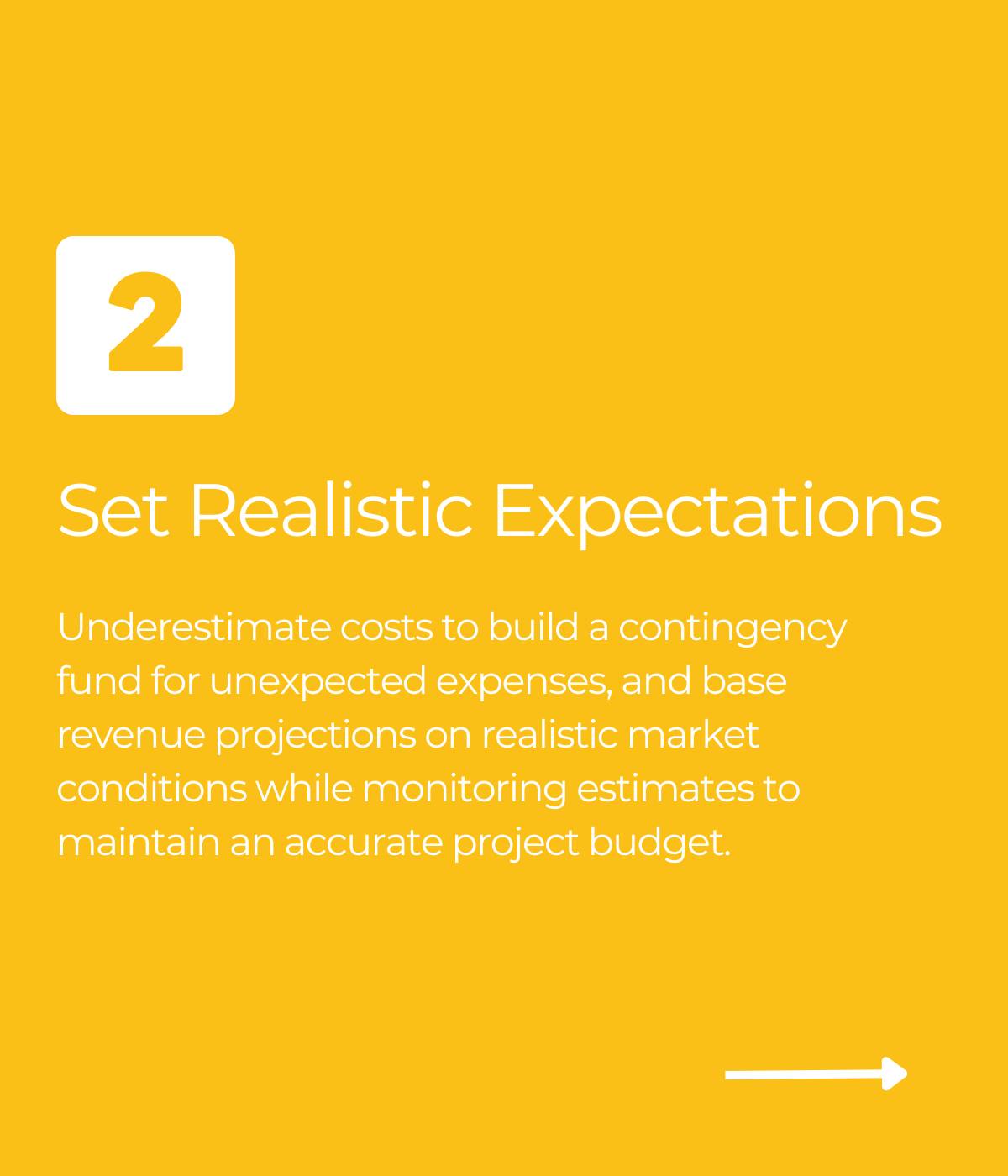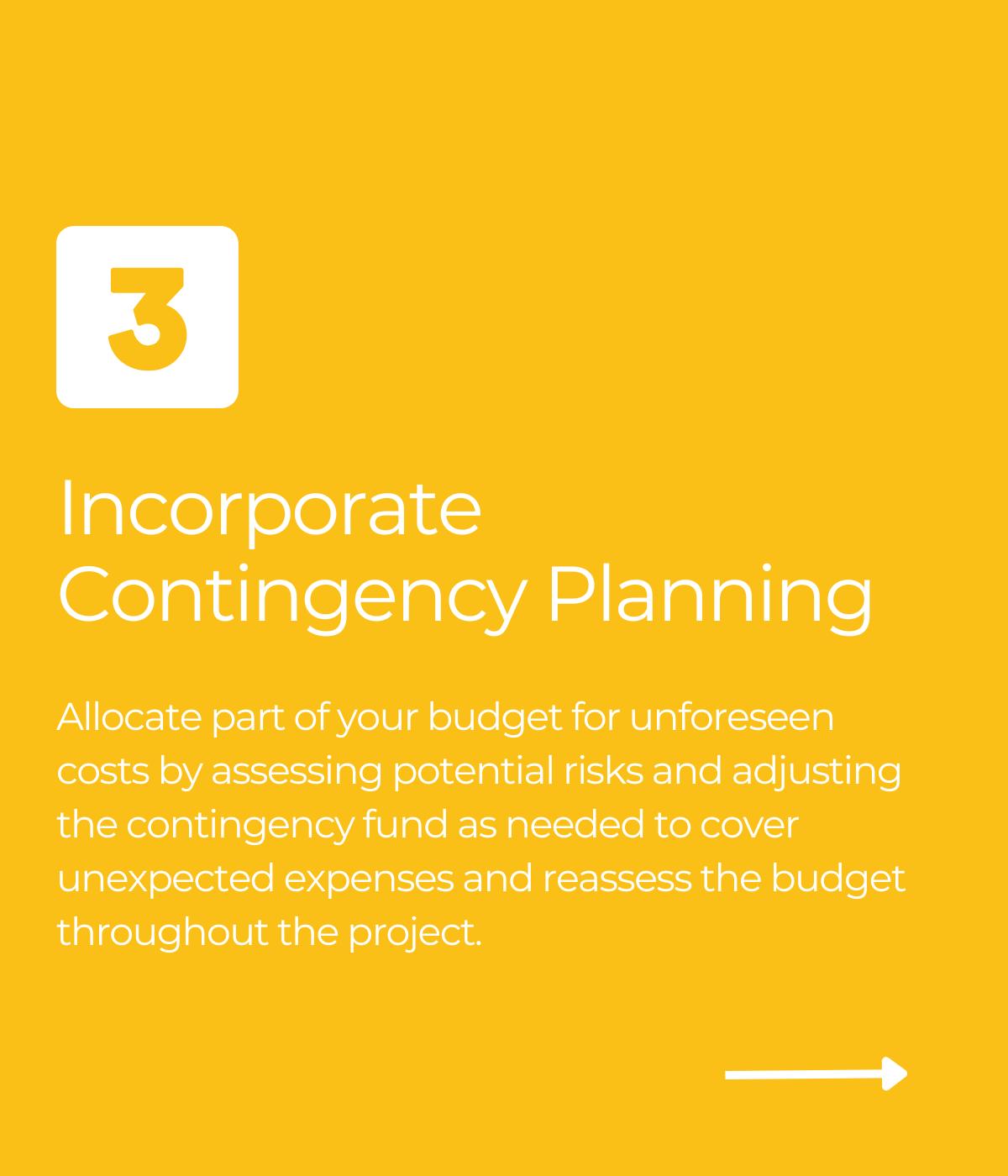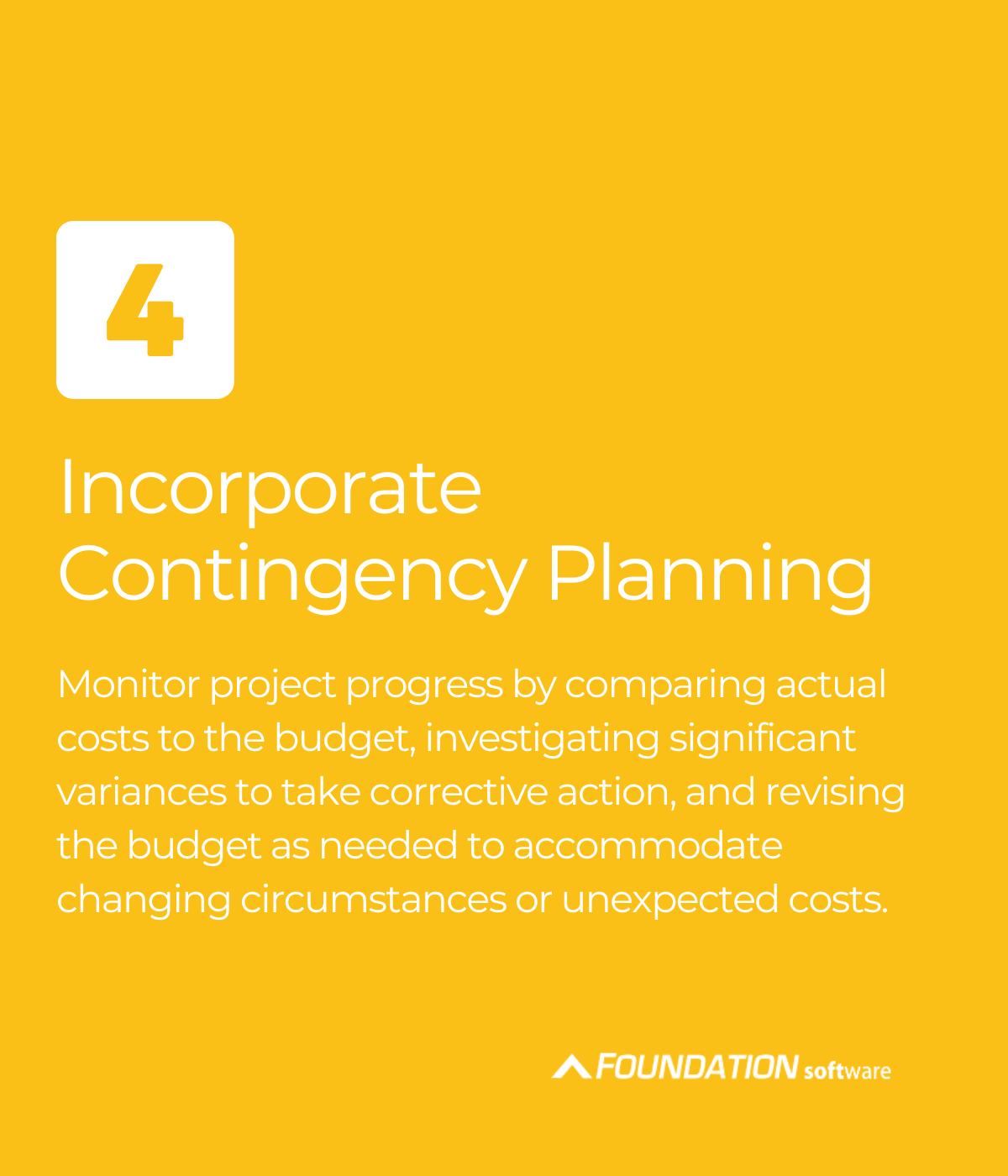
Effective budgeting is the cornerstone of a successful construction business, providing a roadmap for financial planning and ensuring long-term sustainability.
According to Building Design + Construction, material costs rose by 10% over the past 5 years. Meanwhile, on average, nationwide construction projects exceed their budget by 16% at minimum, and it can often be far more.
As material costs continue to rise and more projects exceed their budget, it demonstrates how essential it is for construction companies to have a powerful accounting system in place to track costs, manage cash flow, and ensure profitability.
But what goes into creating an effective and accurate project budget for construction projects? We’re here to help break down what is needed to make sure your construction company improves its financial performance.
Key Takeaways for Construction Professionals:
- Budgeting is crucial for financial planning in construction businesses, enabling better management of costs and improving project cost estimates.
- A construction budget should account for direct costs such as general conditions, labor, materials, subcontractors, and equipment while keeping indirect costs like permits, overhead expenses, and change orders separate.
- Construction projects face variability in material costs, labor rates, and timelines, making accurate budgeting challenging but essential for project success.
- Construction firms should gather accurate data, set realistic expectations, incorporate contingency planning, and regularly monitor and adjust budgets to improve profitability and reduce financial risks.
- By leveraging the financial tools provided in construction accounting software, construction companies can create more accurate and informed budgets, improve financial planning, and make data-driven decisions.
- The key features contractors should look for in construction accounting software include job cost tracking, forecasting tools, scenario planning, cash flow statements, integration with other systems, financial statements, customizable reports, and financial analysis tools.
The Importance of Effective Budgeting for Construction Businesses
In the construction industry, effective budgeting is the cornerstone of a successful construction business. It provides a roadmap for financial planning and allows businesses to enhance their financial visibility.
Effective budgeting is a crucial aspect of construction accounting, especially for long-term contracts.
What Should Go into a Construction Budget?
The primary benefit of a construction project budget is to manage direct costs. These “hard costs” include:
- General Conditions: Expenses related to supporting the general contractor's team, such as office trailers, temporary electricity, and overhead costs.
- General Requirements: Site-specific costs and direct job costs, including security, worker amenities, and cleanup.
- Labor Costs: Costs for self-performed work by the general contractor and general labor, but subcontractor labor should be categorized under subcontractors.
- Material Costs: Costs of materials for self-performed work and materials not covered by construction subcontractors.
- Subcontractors: Typically, the largest expense, broken down by work divisions using a cost coding structure. Track committed costs to forecast future expenses.
- Equipment: Equipment costs provided by the general contractor, such as scaffolding, man lifts, or renting heavy equipment.
Indirect costs should cover indirect expenses, like permits and pre-construction services, and should be accounted for in the project budget, as well as construction change orders.
Break change orders down by cost type and show them as a separate column to visualize their impact on the overall budget and include potential change orders as unapproved items to keep stakeholders informed.
Balancing the equation between total budget and actual costs is crucial, as failing to do so can put your budget at risk and hinder your ability to improve future project cost estimates.
Why is Budgeting Crucial?
By accurately forecasting revenue and expenses, businesses can better manage their cash flow, ensuring that they have sufficient funds to meet their obligations, especially on long-term projects.
A well-crafted budget can also help identify potential financial risks and take proactive steps to mitigate them, preventing costly crises.
With a clear financial picture, budgets can help construction companies make data-driven decisions about proper resource allocation, project bidding, and investment in ongoing projects. This helps improve project profits and business finances.
What are the Unique Challenges of Construction Budgeting?
Construction projects are inherently variable, with factors such as material costs, labor rates, and project timelines subject to frequent fluctuations.
Complex projects often require specialized construction accounting methods that differ from traditional accounting or basic accounting practices.
With more large federal projects, like construction megaprojects, coming down the pipeline, substantial investments are necessary to avoid financial strain on job sites.
These challenges can make accurate budgeting difficult, but they also underscore the importance of having a robust budgeting process in place. With accurate job costing and the best construction accounting practices, contractors can improve their business's financial health, which sets them up for financial success in their construction operations.
Tips for Creating Effective Construction Budgets
By following these tips, construction businesses can create more accurate and effective budgets that help to improve profitability, reduce financial risk, and help them make better financial decisions.
Gather Accurate Data
Analyze previous individual projects to identify trends in labor costs, material prices, and project durations. Utilize this data to help you establish realistic benchmarks for your current projects.
Continuously monitor industry news and publications so you can adjust your budget accordingly and stay updated on changes in:
- Labor rates
- Material prices
- Economic conditions
Be sure to request detailed quotes from suppliers for all materials and equipment. Record expenses for your financial records to ensure that your budget accurately reflects the true cost of your project.
Set Realistic Expectations
It's generally better to underestimate costs than to overestimate them, as overestimating revenue can lead to financial difficulties if the project does not perform as expected.
Whereas underestimating allows you to build in a contingency fund to cover unexpected expenses.
Instead, base your revenue projections on realistic market conditions and your company's capacity. Monitor the estimate for accuracy to ensure you can maintain an accurate project budget.
Incorporate Contingency Planning
Always allocate a portion of your budget to cover unforeseen costs, such as weather delays, material shortages, or labor disputes.
Conduct a risk assessment early on to identify potential risks that could impact your project's costs or schedule.
Once you've identified potential risks, allocate a portion of your budget to cover the costs associated with these risks.
The size of the contingency fund should be based on the likelihood and severity of the risks.
Monitor the contingency fund throughout the entire project and adjust it as needed and if you encounter unexpected costs, use the contingency fund to cover them and reassess your budget accordingly.
Monitor and Adjust Regularly
Track the progress of your project and compare actual costs to budgeted amounts. If you notice significant variances between actual and budgeted costs, investigate the root causes and take corrective action.
If necessary, revise your budget to reflect changing circumstances or unexpected costs. This could involve increasing the budget to cover additional expenses or reducing the scope of the project to save money.
Leveraging Construction Accounting Software to Build Accurate Budgets
Construction accounting software offers a comprehensive suite of tools and features designed to enhance the accuracy and efficiency of budgeting processes.
Key Benefits of Construction Accounting Software
Construction accounting software can help improve the accuracy of budgets on construction projects with access to real-time financial data, which ensures that budgets are always based on the most current information.
Construction accounting software streamlines various financial tasks, such as invoice generation, recording financial transactions, providing detailed reports, and expense tracking, saving construction business owners time and resources.
The software also automates many calculations, reducing the risk of human error and ensuring accuracy.
It provides accurate pictures of project progress, including percent complete calculations, which are essential for progress billing and managing contractual obligations.
Construction accounting software offers real-time dashboards and accurate financial data, enabling you to make informed decisions and effectively manage your construction jobs.
By visualizing key metrics and identifying potential issues, you can create more realistic budgets, mitigate risks, and allocate resources efficiently.
You can also generate tailored reports, like WIP reports and job profitability reports, to analyze specific aspects of your financial performance, such as project profitability or cost variances.
By identifying trends in revenue, expenses, and other financial metrics, you can make informed decisions and forecast future performance that will put your business in a better financial position.
Key Features of Construction Accounting Software for Construction Professionals
By leveraging the financial tools provided in construction accounting software, construction companies can create more accurate and informed budgets, improve financial planning, and make data-driven decisions.
The key features contractors should look for in construction accounting software include:
Job Cost Tracking:
- Track expenses at the task level to identify areas of cost overruns or underruns.
- Construction job costing allows you to compare actual costs to budgeted amounts to measure performance and identify opportunities for improvement.
Forecasting Tools:
- Predict future revenue, expenses, and cash flow based on historical data and trends.
- Create multiple budget scenarios to assess the impact of different assumptions.
Scenario Planning:
- Experiment with different budget scenarios to identify potential risks and opportunities.
- Develop contingency plans to address unexpected challenges.
Integration with Other Systems:
- Connect with project management software to track project costs and progress in real time.
- Integrate with payroll software to streamline payroll processing and ensure accurate labor cost tracking.
- Connect with mobile construction time-tracking software to capture labor hours accurately and allocate costs accordingly.
Customizable Reports:
- Generate tailored reports to analyze specific aspects of your financial performance, such as project profitability, cost variances, or cash flow.
- Create custom dashboards to visualize key metrics and monitor performance in real time.
Financial Analysis Tools:
- Calculate and analyze key financial ratios, such as profit margin, return on investment, and debt-to-equity ratio.
- Identify trends and patterns in your financial data to make informed decisions.
See How FOUNDATION Can Help You Create an Effective Budget
Effective budgeting is a critical component of a successful construction business.
By implementing robust accounting processes, construction businesses lay the groundwork for success, ensuring an accurate representation of their financial position and compliance with labor laws and other regulations.
By accurately forecasting revenue and expenses, cash flow management, and mitigating risks, construction companies can improve their financial performance and make informed decisions.
Plus, by following the guidelines outlined in this article, you can create more accurate and effective budgets. As the industry continues to evolve, your construction businesses will need to stay ahead of the construction industry trends by adopting innovative technologies and best practices so that you have accurate accounting throughout the project lifecycle.
Leveraging construction accounting software can further enhance the budgeting process. Utilizing these different features gives construction businesses the ability to streamline their operations, improve data accuracy, and make data-driven decisions that contribute to their overall success.
FOUNDATION construction accounting software is a valuable tool that can specifically help construction businesses achieve their financial goals and navigate the challenges of the modern construction landscape.
FOUNDATION offers a comprehensive solution for construction businesses seeking to enhance their financial management practices.
By leveraging FOUNDATION's advanced features, businesses can streamline operations, improve data accuracy, and make informed decisions that drive growth and profitability.
Whether you're looking to improve your budgeting and forecasting capabilities, streamline job costing processes, or enhance your financial reporting, FOUNDATION provides the tools and resources you need to succeed.
By investing in FOUNDATION, construction businesses can gain a competitive edge and position themselves for long-term success in the industry.
Chat with our construction accounting experts today to learn more!
Share Article
Keep on current news in the construction industry. Subscribe to free eNews!
Our Top 3 YouTube Videos
Learn about our software more in depth with product overviews, demos, and much more!
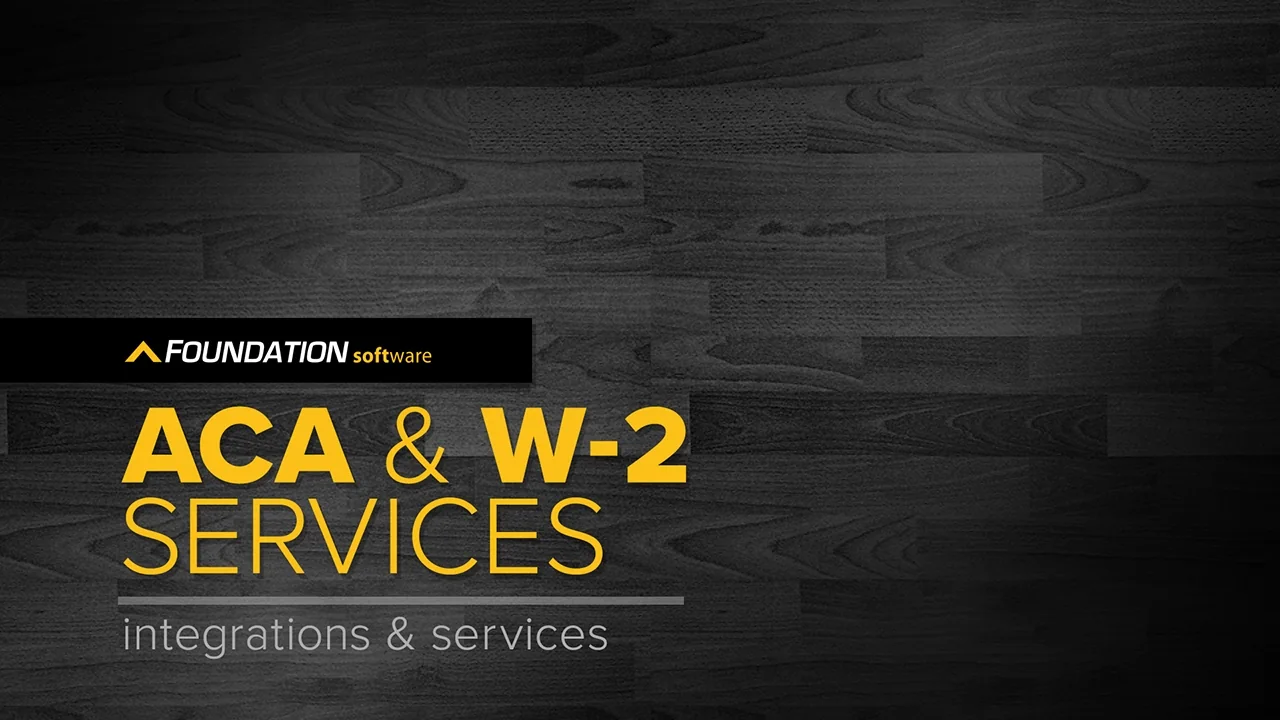
Our ACA reporting & e-filing services include official 1094-C and 1095-C IRS reporting, optional e-filing (no applying for a TCC code required), mailing to your employees and experienced support to help you.

There are plenty of reasons to make FOUNDATION your choice for job cost accounting and construction management software — just ask our clients!
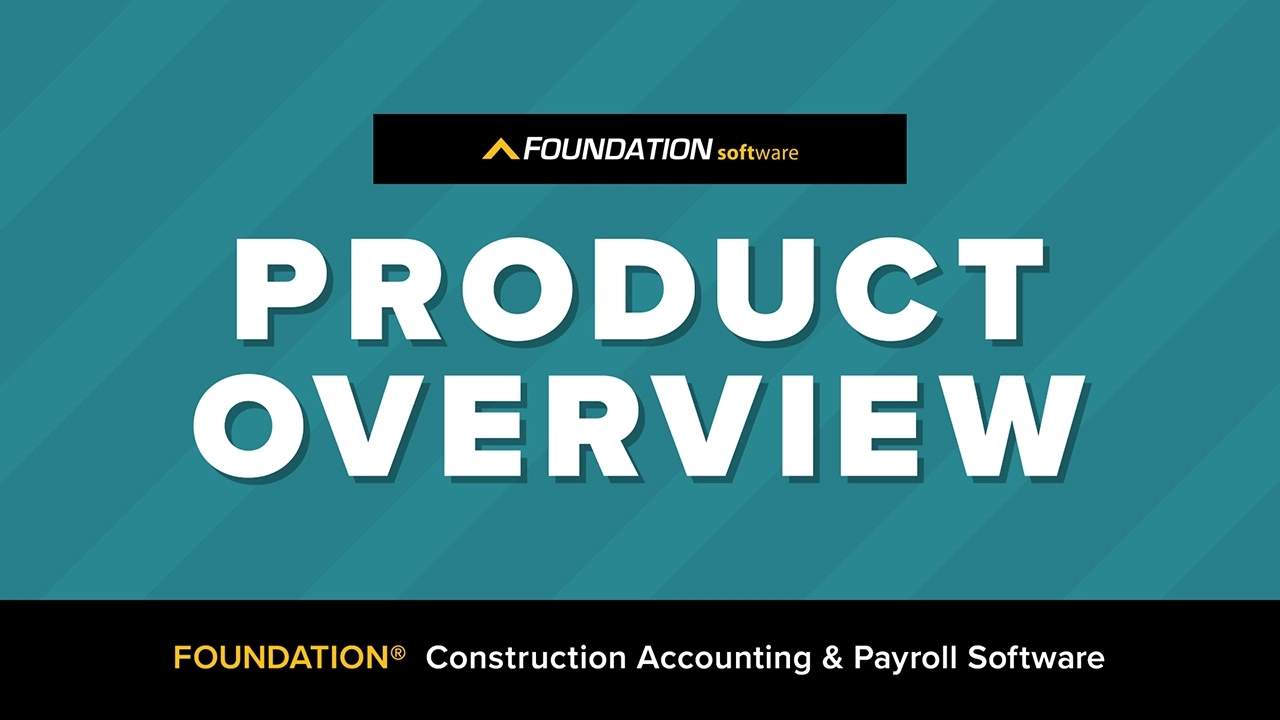
From job cost accounting software, to construction-specific payroll. Get an overview on your next all-in-one back-office solution.

